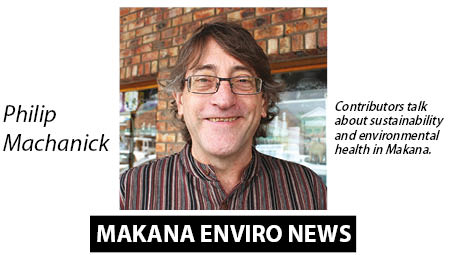Sadly, we have to keep thinking about water. We may have had the odd day or two (usually weekends, it seems) of good rain, but nowhere near enough to turn things around.
We have three critical problems. The first is failing infrastructure leading to much leakage and failure of the purification equipment – at one point with an unsafe level of bacteria delivered to homes. The second is the extremely low level of Settlers, the main dam that feeds the west side of town, which has been at around 20% for months. The final problem is that the interconnect between east and west is not sufficient to supply both demand should Settlers run dry. The east side is connected to the Orange River scheme so supply is not a problem. But capacity is.
Over the next two years, there is a plan to upgrade capacity significantly but in the mean time we face the real threat of water rationing on the west side, while the east side continues to have many issues with supply and quality.
There is no quick fix. In Makana two things have to change for us to “live within our water means”:
- Municipal functions must improve;
- Our water use behaviour must change – forever. Climate Change is real, but it comes with huge variations – very dry, very wet; and we do not know which it will be.
This makes the two changes even more important. In municipalities, many hardworking people are stuck in a system with many points of failure. All of these have to be fixed for a municipality to work well. Makana needs to identify these key points and address them. Seeing the Municipality act will encourage people to go on with or start the daily business of using less water.
Yes, it is important, yes it will help – just do it.
What can we do ourselves?
First, we can minimise water use. If you take a bath, save the water to flush toilets. You can also save shower water if you stand in a bucket. Don’t run the tap until hot water starts without saving the cold water. That too can flush toilets, be used for rinsing vegetables, etc. If you can afford a rainwater tank (or better still, more than one), that is a great investment for the future. Even if the poorer residents can’t afford one, any decrease in demand for municipal supply helps.
Looking at the bigger picture, ecological restoration can protect our water resources, as invader species can be water-hungry and wetlands can dry out if the correct mix of vegetation is not maintained.
More at https://www.ser.org/general/custom.asp?page=SERNewsLetter
Litter
After Festival, a heated discussion arose over trash left behind by traders in the High Street (Church Square) market. The National Arts Festival and Municipality cleared it expeditiously. But there is a cost to residents: those with Monday trash pickup were serviced late – with the usual consequence of dogs and wandering livestock scattering the contents of the black bags.
We need to address the perception that tolerance to litter is an Eastern Cape thing. Why should it be? After Madiba was released from jail, he was horrified at the litter in the countryside, which resulted in making free supermarket bags illegal.
There are two things I would like to see change: the perception that litter is OK (it’s not – nor is it just an aesthetic issue; trash in the streets attracts rats) and a change in our approach to managing waste. We have many poor people here. Properly managed, waste is a big economic opportunity. In some other poor countries, waste pickers have become highly organised, generate income from recyclable waste, and help reduce waste management problems. With a bit of imagination, we could achieve the same here.
I thank Tally Palmer for inputs to the water issue and Roy Lubke for a pointer to the Society for Ecological Restoration.
Find us Online: www.grocotts.co.za/environews
Contacts for Makana Enviro-News:
Nikki Köhly: n.kohly@ru.ac.za, 046 603 7205 | Tim Bull: timothybull05@aol.com, 076 289 5122 | Jenny Gon: j-gon@intekom.co.za, 046 622 5822 | Philip Machanick: p.machanick@ru.ac.za, 046 603 8635.
Find us Online: www.grocotts.co.za/category/outside/enviro-news


